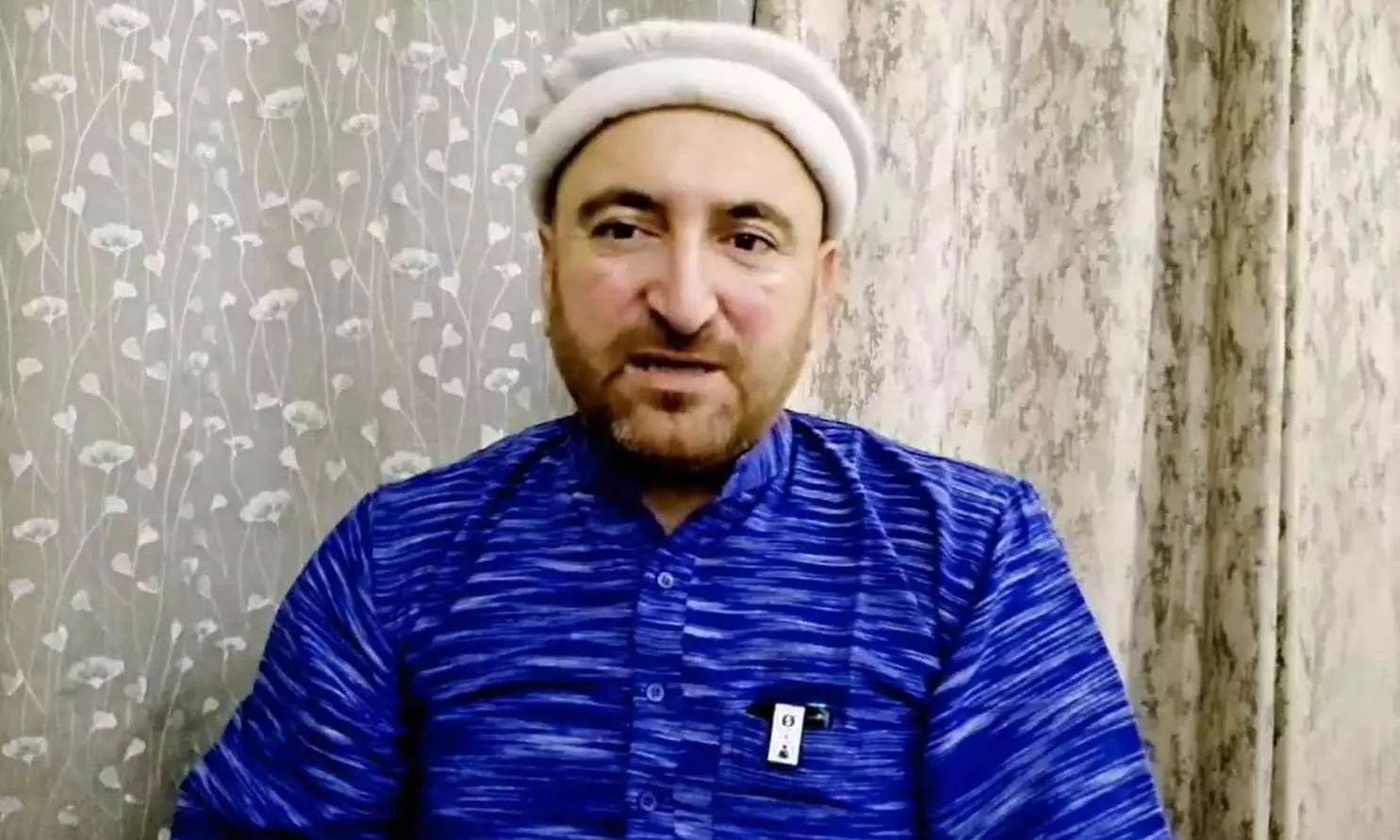Sajjad Kargili, leader of the Kargil Democratic Alliance (KDA), spoke to The Federal about the recent violence in Ladakh, the boycott of talks with the Centre, and the growing resentment among people over the region’s political future. Kargili explains why Ladakh’s leadership pulled out of the October 6 dialogue, outlines key demands, and warns that without justice, peace in the region cannot be restored.
You have come to Delhi at a time when Ladakh is reeling from violence. What made you come to the national capital now?On September 23, two people were injured and hospitalized. The next day, violence erupted in Leh. Four people died, many others were injured, and more than 40 people were arrested.We already had plans to come here for a dialogue on October 6. But given the situation, we first went to Leh to meet the injured and the families of those killed. We also met members of the Leh Apex Body.We had a meeting scheduled with officials of the Ministry of Home Affairs on September 29. But after discussions, the Apex Body decided to pull out of the dialogue, and the KDA extended its support. Until a judicial probe is initiated and all those arrested—including Sonam Wangchuk—are released unconditionally, we will not participate in talks.
Also read: Ladakh curfew hits tourism hard, empties hotels and taxis off roads
After the boycott of talks, what are your specific demands from the Centre?Since the bifurcation of the state, the people of Ladakh have been disempowered on three levels. Politically, we lack representation. We have no safeguards for our land. And we were promised constitutional guarantees, including protection under the Sixth Schedule, which have not been delivered.We demand:
- Constitutional guarantees under the Sixth Schedule
- A Ladakh-based cadre through a Public Service Commission
- Proper representation in Parliament, since one seat is insufficient for such a vast region
- Statehood for Ladakh
For the past four years, we have engaged in dialogue with the government, but no concrete results have come. That is why we are disappointed and insist that any talks must now be meaningful and dignified.
Also read: Sonam Wangchuk’s wife speaks out: Why put him in jail instead of having a dialogue?
What is the exact situation in Ladakh right now, and what will it take to restore normalcy?The only way forward is to initiate a judicial probe and take local leaders into confidence. Unfortunately, since the violence on September 24, no leader has been invited for dialogue—not the Hill Council members, not even the MP from Ladakh. The LG-led administration has not consulted elected bodies at all.This has deepened the sense of alienation and insecurity. To restore normalcy, the government must act maturely, include elected representatives, initiate a probe, and hold accountable those who opened fire on protesters. Without this, dialogue would only legitimize injustice.The UT administration has compared the protests to those in Nepal and Bangladesh, calling them “Gen Z protests”. How do you respond to this?That claim is false and unfair. The protests in Ladakh were not led by one age group. Every section of society—youth, elders, women, all communities—has participated in this movement for the past three years.Equating Ladakh’s protests with movements in Nepal, Bangladesh, or Sri Lanka is unjustified. In those countries, people were trying to topple governments. We are not. We are demanding constitutional safeguards and democratic rights from our own government.Ladakhis have always stood with the nation. From 1948 to the recent Galwan clashes in 2020, people from Ladakh have shed blood alongside the Indian Army to protect borders. We are part of the “natural defence” of the country. But today, the government is alienating those very people.Also read: Ladakh administration denies ‘witch-hunt’ against Sonam WangchukWhen Article 370 was revoked in 2019, Ladakh’s two regions had very different reactions. Did you foresee the current crisis back then?Yes, we had apprehensions. Even during bifurcation, we feared that the UT model without a legislature would not work. We had seen the limitations of Delhi’s elected government under the LG system, so it was clear Ladakh would face worse.Initially, Kargil demanded reintegration with Jammu & Kashmir. But later, both the Leh Apex Body and KDA came together with a four-point agenda: separate statehood for Ladakh, Sixth Schedule protection, a dedicated cadre, and representation in Parliament.For six years, the absence of democracy has created resentment and a sense of betrayal. That is why we continue to push for constitutional guarantees.Also read: Bruised by ‘anti-national’ tag, Kargil sides with Leh on boycotting talks with CentreAfter the September 24 incident, what will it take for Ladakh’s leadership to return to the negotiating table?Dialogue can only resume in a dignified manner. That requires:- Releasing all those arrested, including Sonam Wangchuk
- Dropping false charges against protesters
- Relief, compensation, and medical care to the injured and families of the deceased
- Initiating a judicial probe into the violence
Only after these steps can we return to the table. Otherwise, we will continue our movement independently. Dialogue without justice will only legitimize injustice.
(The content above has been transcribed from video using a fine-tuned AI model. To ensure accuracy, quality, and editorial integrity, we employ a Human-In-The-Loop (HITL) process. While AI assists in creating the initial draft, our experienced editorial team carefully reviews, edits, and refines the content before publication. At The Federal, we combine the efficiency of AI with the expertise of human editors to deliver reliable and insightful journalism.)



